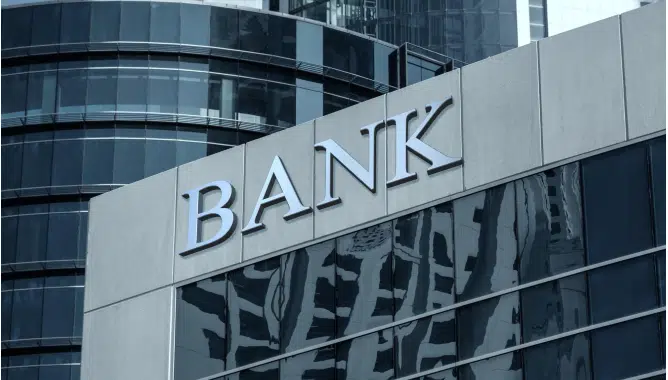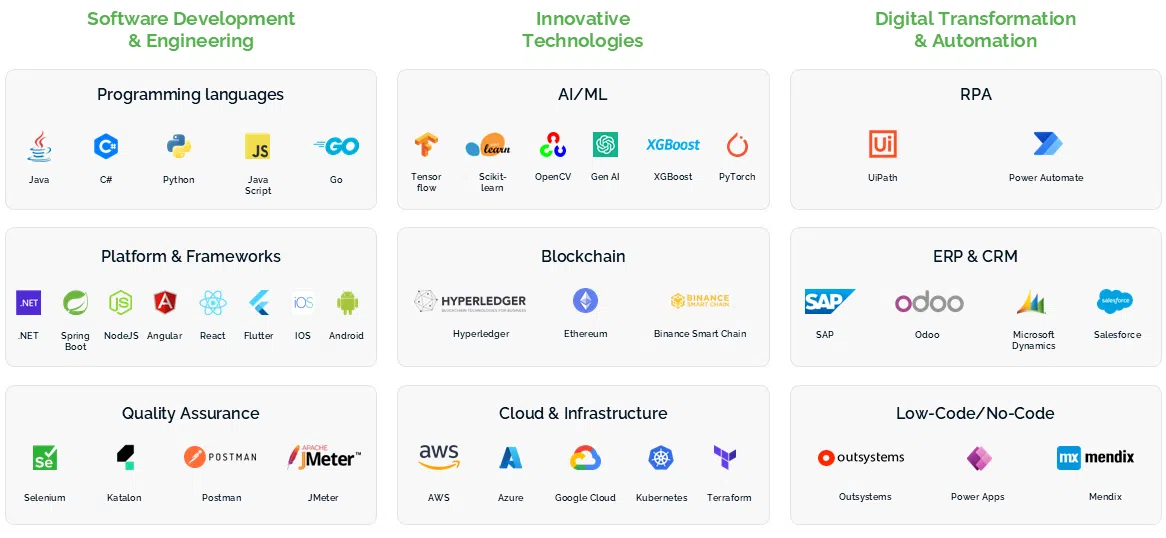Unlock innovation, enhance security, and drive growth with our end-to-end blockchain services designed to meet your strategic needs.
Unlock innovation, enhance security, and drive growth with our end-to-end blockchain services designed to meet your strategic needs.



At Savvycom, we harness the disruptive power of blockchain technology to deliver transparent, secure, and scalable solutions that address complex business challenges. Our comprehensive suite covers everything from custom app development to robust infrastructure management, providing a solid foundation for your digital transformation.

App Development

Blockchain Integration

Smart Contract Development

Blockchain Infrastructure

Blockchain enhances transaction transparency and reduces fraud, cutting reconciliation costs by up to 50%. Savvycom implements secure decentralized ledger solutions that lower fraud rates by 40% and streamline financial operations, ensuring faster settlements and robust regulatory compliance.

Blockchain ensures the integrity of patient records and reduces data breach risks by up to 50%. Savvycom integrates advanced blockchain systems that improve record accuracy by 30% and support compliance with stringent healthcare regulations, ultimately enhancing patient care quality.

Blockchain boosts traceability and minimizes counterfeit risks, improving inventory management efficiency by around 30%. Savvycom deploys real-time, tamper-proof blockchain platforms that optimize supply chain processes, reduce errors, and enhance overall transparency.

Blockchain ensures product authenticity and streamlines payment processes, leading to a 15% improvement in transaction efficiency and a 20% boost in customer trust. Savvycom’s blockchain solutions facilitate secure, transparent transactions that drive customer loyalty and elevate overall satisfaction.
01
Discovery
Identify the key challenges your business faces and validate the strategic need for blockchain adoption
02
Develop Requirement
Specify detailed functional and technical requirements to build a clear implementation roadmap.
03
Choose Architecture
Select the optimal blockchain type (public, private, or consortium) and platform (e.g., Ethereum, Hyperledger) to ensure scalability and security.
04
Design Blockchain Nodes
Architect a reliable, decentralized network by configuring nodes and clearly defining their roles.
05
Develop Smart Contracts
Create and rigorously test smart contracts to automate critical business processes securely.
06
Build APIs & Integration
Develop robust APIs and middleware to integrate your blockchain solution with existing enterprise systems seamlessly.
07
Deploy & Configure
Launch your blockchain ecosystem and deploy smart contracts for a fully operational solution.
08
Optimize & Monitor
Continuously refine performance, scale operations, and ensure ongoing security through proactive monitoring and maintenance.
Transparent Process
Our clearly defined, end-to-end development process builds confidence and predictability at every stage.
Comprehensive Service Offering
We provide a complete suite of blockchain solutions, from dApp and smart contract development to seamless integration and infrastructure management, ensuring all your needs are met.
Business-Focused Approach
Our solutions are tailored to solve your specific challenges, delivering measurable results aligned with your strategic goals.
Proven Expertise
With years of experience and a track record of successful implementations, Savvycom is your trusted partner for blockchain innovation.
blockchain technologyReady to revolutionize your business with comprehensive blockchain outsourcing service?
Jio collaborated with Savvycom to create a cost-effective, smart engagement system that helps improve community health and bridges the gap in accessing private healthcare between patients and doctors.
Country: Vietnam
Scale: 4 facilities, 200+ doctors
Industry: Healthcare
Category: Telemedicine App

Kokkiri partnered with us to create a meditation mobile app that provides relaxing sound recording and psychology classes for healing and relaxation of the mind.
Country: South Korea | Industry: Healthcare | Scale: SMEs | Category: Meditation App
30.000+
cross-continent users served at the same time
50.000+
app installs after only 10 days of launching
No.1
app for Fitness and Healthcare

The Cambodian bank offers comprehensive financial services, including loans, bill payments, and banking services, tailored to meet the diverse needs and preferences of their clients.
Country: Cambodia
Scale: 92 branch offices, 10,000+ employees
Industry: BFSI
Category: Financial Mobile App, Data Migration, Integration, Security

KG KAIROS represents a pioneering collaboration between KG Group and the Korean Ministry of Employment and Labor. This program combines education with practical projects, designed to elevate the real-world capabilities in AI and Robotics.
Country: South Korea
Scale: Large Corporation
Industry: Education
Category: Web Development

